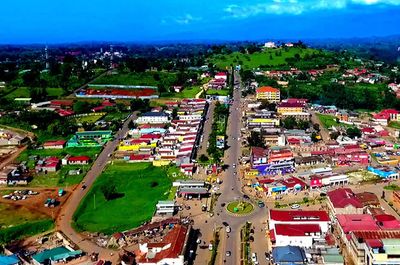

DNA science has myriad uses beyond proving paternity
In recent months, Uganda has witnessed a remarkable surge in the demand for DNA paternity tests. The media has not been short of dramatic and tragic stories as families across the country are turning to molecular biology techniques to resolve doubts and establish biological relationships.
While the popularity of paternity testing is understandable, it is important to recognize that molecular biology has far-reaching applications beyond this single use case. The time is ripe to broaden our understanding and create awareness about the myriad possibilities that lie within the realm of molecular diagnostics.
Molecular biology, the study of biological activities at the molecular level, holds immense potential in various fields of natural and health sciences. From healthcare to agriculture, from forensic science to biodiversity conservation, this powerful branch of science has revolutionized our understanding of life itself. It is time for Ugandans to embrace the untapped potential of modern biotechnology.
Beyond the realm of paternity tests, molecular biology has the power to transform healthcare as we know it. With the advancements in genetic sequencing technologies, DNA testing can play a crucial role in personalized medicine. By analyzing an individual’s genetic makeup, healthcare professionals can determine the most effective treatments, minimize adverse reactions to medications, and even predict disease before happening! This targeted approach to healthcare can not only save lives but also reduce healthcare costs in the long run.
Molecular biology techniques are also very crucial in drug research and discovery. For example my current research (in Israel) is focused on studying the neuro-protective potential of bitter melon extracts. I use genetically engineered C. elegans worms as model organisms to investigate the effect of bitter melon extracts on stresses and genetic pathways related to Alzheimer’s and Parkinson’s diseases.
But wait, there is more!
The applications of molecular biology are not limited to the realm of healthcare alone. In agriculture, modern biotechnology has revolutionized crop improvement and food safety. By analyzing the genetic makeup of crops, National Agricultural Research Organisation (NARO) scientists have developed varieties that are more resistant to diseases, pests, and adverse environmental conditions.
This not only enhances crop productivity but also ensures food security for our fast growing population. Furthermore, DNA testing can help identify potential contaminants in food, thus ensuring that the food we consume is safe and free from harmful substances.
Forensic science is another field where molecular biology has made significant contributions. DNA profiling has become an indispensable tool in solving criminal cases, identifying perpetrators, and exonerating the innocent. It provides irrefutable evidence and helps deliver justice. By expanding our awareness of the capabilities of molecular biology, we can further strengthen our forensic capabilities and ensure a fair and efficient criminal justice system.
Biodiversity conservation is yet another area where molecular biology plays a vital role. DNA sequencing techniques could enable Uganda Wildlife Authority (UWA) to track endangered species, combat illegal wildlife trade, and preserve our rich biodiversity. By leveraging molecular biology techniques, we can also better understand the complex web of life and take targeted conservation actions to protect our natural heritage.
Despite the immense potential of molecular biology, there are challenges that have hindered its widespread adoption in Uganda. Limited infrastructure, high costs, and a low awareness and uncertain policy guidelines are significant barriers. However, these challenges present opportunities for growth and development.
By investing in research infrastructure, establishing collaborations with national and international institutions, and providing training and educational programs, we can bridge the gap and unlock the full potential of molecular biology in Uganda.
Creating awareness about the broader applications of molecular biology is paramount. Individuals, communities, and policymakers must recognize the value of molecular diagnostics beyond paternity testing [‘Dala Nze Amuzaala’ (DNA)]. Increased awareness can lead to better funding, research opportunities, and overall advancement in scientific and technological capabilities.
It is essential to promote dialogue and foster collaborations between scientists, policymakers, and the public to harness the full potential of modern biotechnology. Let us seize this opportunity to propel our nation forward into a future where science and technology fuel progress and improve the lives of all Ugandans.
The writer is a Ugandan biotechnologist living in Israel
owensingura@gmail.com













Owen Singura
Leave a Comment
Your email address will not be published.